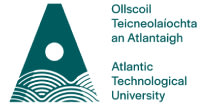This is a Masters by Research project.
Supervisors: Dr. Sarah Diffley, Dr. Vicky O’Rourke
Project Summary:
As business environments continue to change rapidly, an increasing body of literature looks to integrative approaches to learning that seek to enhance academic excellence, ensuring graduates develop the competencies necessary to excel in the workplace. This ‘real-world rigour’, “is required to increase the adaptability of higher education graduates in a fast- changing business environment and to ensure that graduates have gained the industry competencies in higher education that will enable them to be successful in the future workforce” (Woodside, 2018, p.1). Degree-level apprenticeships have emerged as a means of achieving this integration. Representing an approach to work-integrated learning through full degrees and paid apprenticeships, apprenticeships exist at undergraduate and postgraduate degree level (Martin et al., 2020). Felce (2018, p. 141) highlights that “Higher level and degree apprenticeships have brought together different cultures and methods of designing, delivering and assessing knowledge, skills and behaviours, funding learners and learning providers, data reporting, quality management and its review or inspection”. Apprenticeships act as a means of providing new pathways to employment, offering apprentices access to careers that were previously only accessible by professional exam or academic higher education programmes (Magner and Jackson, 2018).
This alternative approach to apprenticeships relies on collaboration, cooperation and co- creation between stakeholders. These stakeholders can include Universities, students, independent trainers, professional bodies, employers and further education bodies. Collaborative activities include the creation of curriculum, and delivery of content. The graduate qualities of apprentices must also be taken into account with the student experience, correct means of assessment and correct learning and teaching strategies necessary to support apprenticeship students. As such, these represent key research areas (Mulkeen et al., 2019). Lambert (2016) notes that accountability in relation to apprenticeship delivery represents an important issue. As a tri-partite relationship between the training provider, employer and learner, complexities naturally exist.
The overarching aim of the research is ‘To assess the implications of third-level accredited apprenticeships for Higher Education Institutes in Ireland.’
The objectives of this research are to:
- To explore the necessary assessment, student experience, learning and teaching strategies, and graduate qualities necessary to support the development of accredited apprenticeships in Higher Education Institutes.
- To investigate employer attitudes towards accredited apprenticeships in Higher Education Institutes.
- To investigate student attitudes towards accredited apprenticeships in Higher Education Institutes.
- To assess stakeholder willingness to engage in the collaboration, cooperation and co- creation activities necessary to develop accredited apprenticeships in Higher Education Institutes.
- To make recommendations about the effective integration of accredited apprenticeships in Higher Education Institutes.
The methodological approach employed in the research will be that of primary research. Mixed methods research, where both qualitative and quantitative data is collected and analysed, will take place. Phase 1 will entail qualitative data collection and analysis. Phase 2 will entail quantitative data collection and analysis. Adopting this sequential mixed-methods research approach allows the second phase to expand or elaborate upon the findings from the first phase. “Using a double-phase or multi-phase research design suggests a dynamic approach to the research process which recognises that mixed methods research is both interactive and iterative, where one phase subsequently informs and directs the next phase of data collection and analysis” (Saunders et al., 2019, p. 183). From a data collection and analysis perspective, the nature of sequential design is clear and straightforward, with analysis and reporting of results a staged process (Creswell, 2009).
Candidate Qualifications/Requirements:
Level 8, Degree in Business (minimum 2.1) or equivalent. Applicants will be called for interview, please note that shortlisting may apply.
Application Process
- To apply for this Masters by Research project, please send your CV and cover letter to the [Email Address Removed] by 5:00pm, Thursday 9th June. Please include "MR.16" in the subject of the email.
- Candidates should hold or expect to hold at least an Honours Degree in a relevant discipline and meet the University’s English Language requirements (minimum IELTS Level 6.5 or equivalent)

 Continue with Facebook
Continue with Facebook



